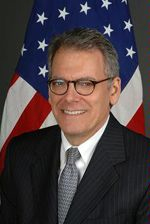By Ana Radelat
WASHINGTON — Perhaps the toughest thing for President Obama to do to implement his new Cuba policy is naming a U.S. ambassador to Cuba who will implement the president’s goal of resuming full diplomatic relations with the island.
Obama’s problems are political — both in Washington and Havana.
The candidate must be respected by the Cuban government to be effective, and accepted by a GOP-controlled Senate in the next Congress.
The latter might be the toughest task for the president.
Getting the nominee voted out of the Senate Foreign Relations Committee will be difficult. The panel includes Sens. Marco Rubio (R.-Fla.), and Robert Menendez (D-N.J.), two members who are furious about the president’s actions and have threatened to hold up any ambassadorial nominee. But the full makeup of the committee, which will have more Republican than Democratic senators next year, is not yet known, pending final decisions by Senate leaders of both parties.
Something that could help the president’s nominee, however, is the presence on the committee of Sens. Jeff Flake of Arizona and Rand Paul of Kentucky, two Republicans who back the president’s plan.
But even if the nomination is voted out of committee, a full vote by the Senate could be tricky. The nomination could be blocked by any senator if the White House can’t secure at least 60 votes in the 100-member body.
The candidate for U.S. ambassador to Cuba – along with the president’s plans for Cuba – would also face tough grilling in a nomination hearing in the Foreign Relations Committee, something the Obama administration is likely to want to avoid.

Obama could avoid all this congressional drama by keeping the chief of the Cuban Interest Section, Jeffrey DeLaurentis, as a chargé d’affaires, said Washington attorney Robert Muse, who thinks the U.S. Interests Section in Havana is already fully equipped to normalize relations.
“It has a full complement of foreign service officers who provide a full range of consular services already,” he said.
A chargé d’affaires represents his or her nation in the country they are accredited to,and enjoys the same privileges and immunities as a regular ambassador. They usually serve on a temporary basis when the ambassador is away, but some have served for long periods of time.
DeLaurentis is considered a top candidate for the job of U.S. ambassador anyway. A career member of the Senior Foreign Service, DeLaurentis was recently made chief of mission, in August, when secret talks between the United States and Cuba had been ongoing for more than a year.
Although he’s a newcomer to the chief of mission job, DeLaurentis knows Cuba well, having served twice in Havana before, first as consular officer in 1991-93, then as Political-Economic Section Chief from 1999-2002.
DeLaurentis has also been the head of the State Department’s Bureau of Western Hemisphere Affairs and served in U.S. mission to the United Nations.
Even so, Obama could go in a different direction, some say.
The president has been close to the Cuban American National Foundation and its Chairman Jorge Mas. Mas has moderated the bent of the exile organization, which was founded by his late father, whom Fidel Castro considered a terrorist. It would be tough for most GOP senators to reject Mas if he were nominated by Obama, but the CANF leader’s focus on human rights in Cuba may provoke a negative reaction from the Castro government.

As far as Cuba’s ambassador to the United States, the leading candidate is José R. Cabañas Rodríguez, the current head of Cuba’s Interests Section in Washington. Cabañas has traveled extensively in the United States in the last year to speak at think tanks and universities.
The United States and Cuba have planned to continue talks on normalization in January.
